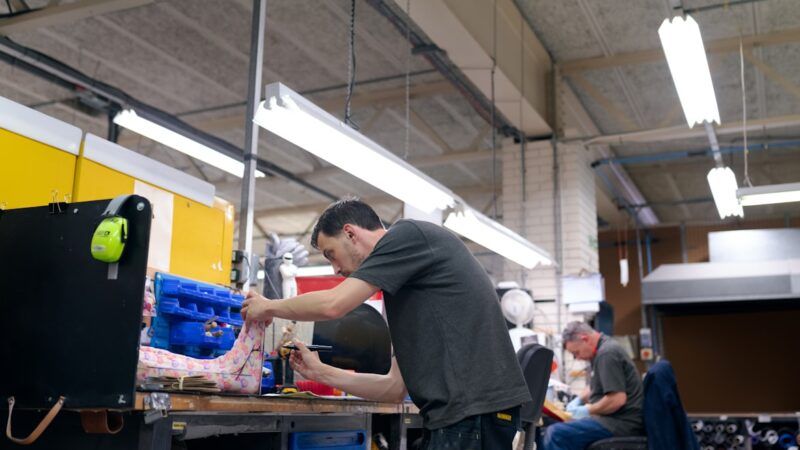American Manufacturing Needs Relief From Trump's Tariffs
Manufacturing has been in decline for six months, nearly the exact amount of time since Trump's new trade wars began.

The data are becoming impossible to ignore: American manufacturers desperately need relief from the very same tariffs that the Trump administration incoherently believes are helping American manufacturers.
That conclusion is evident from both results of a new survey of manufacturing companies' CEOs and new economic data showing that manufacturing activity has declined for six consecutive months—the sort of slide over two economic quarters that typically meets the definition of a sector-wide recession. In short, both words and actions point to something being very wrong with American manufacturing since February, which just so happens to be when Trump announced the first of what have become many rounds of new tariffs on imported goods and raw materials.
The economic data come courtesy of the Institute for Supply Management (ISM), which tracks a combination of factors including orders, employment, and inventories. A score higher than 50 in the monthly index indicates expansion, while a score below that threshold means contractions. For August, the ISM survey showed a score of 48.7, up from 48 in July.
Discussion of tariffs "continued to dominate commentary from manufacturers," Reuters reported, citing several of the anonymous comments submitted by manufacturing firm executives as part of the ISM survey. "This is 100 percent attributable to current tariff policy and the uncertainty it has created," reads one such comment. Another called the current economic conditions "much worse than the Great Recession."
Meanwhile, a Dallas Federal Reserve survey of businesses released last week showed the vast majority of businesses say tariffs have caused harm and most believe that worse is yet to come.
Just 2.1 percent of the 329 businesses that responded to the Federal Reserve survey said that the tariffs have had a "positive impact," while 47.7 percent said the effects have been negative. "The effect is most widespread in manufacturing, where more than 70 percent of firms noted negative impacts, followed by retail, where roughly 60 percent of firms noted negative impacts," the survey notes.
When asked how the tariffs had affected them the most, higher input costs, higher selling prices, and slower supplier delivery times were the most common response. Separately, 48.2 percent of businesses said they had already passed cost increases along to consumers, and 31.9 percent said they had plans to do so.
Looking ahead, few of those same business executives expect the outlook to improve. Just 1.6 percent of the replies in the Federal Reserve survey said they expect the tariffs to have a positive impact over the rest of the year.
At this point, the courts would seemingly be doing both manufacturers and the Trump administration a huge favor by blocking the tariffs. However, the White House seems determined to press forward—Treasury Secretary Scott Bessent is now saying the administration will pursue tariffs via other mechanisms, even if the Supreme Court sides with other courts and rules against Trump's sweeping claim of emergency powers to set tariff rates.
No wonder so few businesses are optimistic. The bearings will continue until the White House improves its understanding of basic economics.


Show Comments (69)